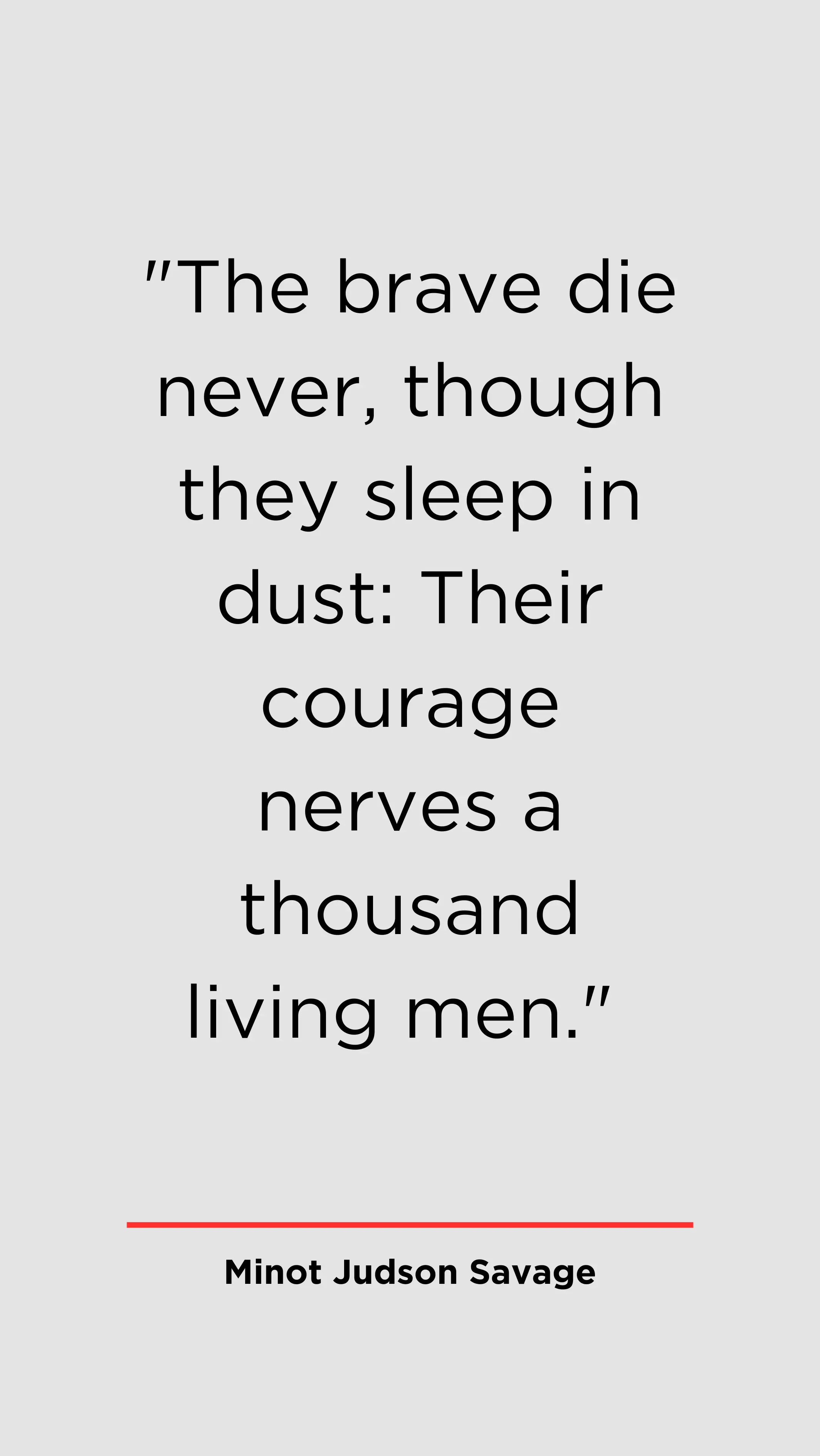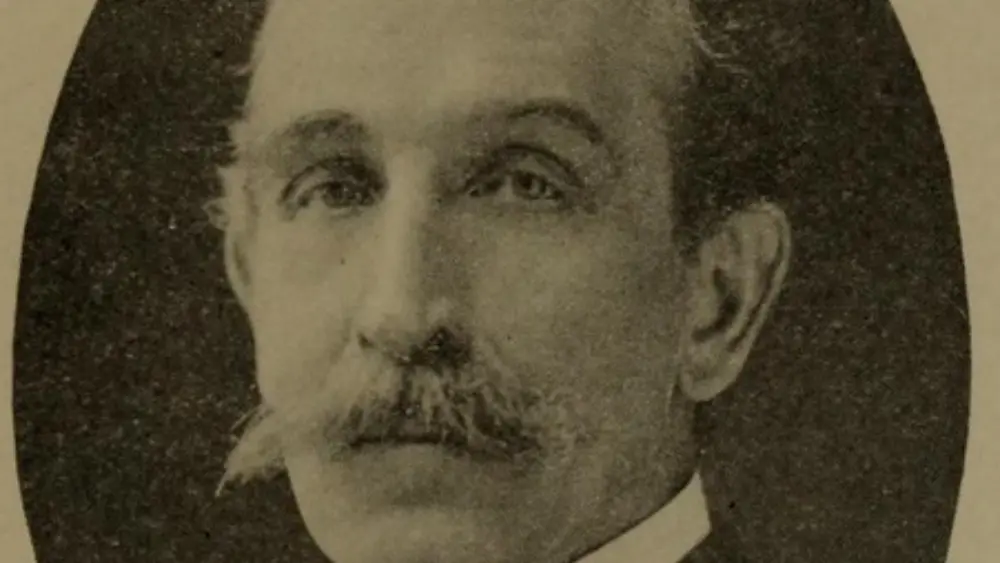We honor Minot Judson Savage for his pivotal role in shaping liberal Christianity and promoting religious tolerance and social justice. Savage was born on June 10, 1841, in Norridgewock, Maine, and defined his life with progressive spiritual views.
Early Life and Education
Maine’s scenic upbringing shaped Minot Judson Savage’s deep love for nature’s tranquility and aesthetic appeal during his early years. His rural upbringing fostered introspection and an early interest in life’s spiritual facets amid the town’s hills and lakes. This initial fascination with the mysteries of existence would lay the foundation for his lifelong commitment to theological exploration and compassionate inquiry into the complexities of faith and human experience. Maine fostered his curiosity and deep empathy, becoming central to his philosophical teachings, characterized by compassion and intellectual exploration.
Enthralled by knowledge and spirituality, Savage’s education began at Bangor Theological Seminary, delving into religious intricacies and moral philosophy. Here, he refined his theological acumen and voiced his unique spiritual perspective, stressing empathy and understanding in religious conversations. Post-seminary, Harvard nurtured his scholarship, immersing him in an enriching intellectual milieu that deepened his theological and philosophical insights. His academic rigor and profound spirituality laid the foundation for his future as a thought-provoking theologian and inclusive faith advocate.
Minot Judson Savage: Unitarian Ministry and Social Advocacy
As a Unitarian minister, Minot Judson Savage promoted liberal Christian values, emphasizing individual conscience and moral excellence. Through sermons and lectures, he challenged norms, urging a more inclusive and compassionate approach to spirituality for his congregation. Notably, Savage’s Unitarian principles fostered communal solidarity, advocating free inquiry and social justice and fostering equity and empathy.
Beyond preaching, Savage actively advocated for addressing pressing societal challenges, driven by a profound sense of social responsibility. With a firm belief in individual dignity, he ardently supported women’s rights, advocating for equal opportunities and fair treatment. Furthermore, he fervently advocated labor reform, recognizing and addressing the working class’s plight for better conditions and wages. His unwavering commitment to racial equality led him to promote understanding and harmony, striving to dismantle racial prejudices. Through tireless advocacy, Savage significantly contributed to progressive reform, leaving an indelible mark on social justice in his time.
Theological Contributions
In his theology, Savage emphasized reason and ethical introspection, showcasing their profound power within the realm of spirituality. Through writings and sermons, he challenged traditional religious dogma, advocating for an intellectually rigorous and morally conscious approach to faith. His works prompted questioning of established beliefs, fostering intellectual independence and open inquiry within religious communities, and encouraging critical examination. Emphasizing the link between ethics and spirituality, Savage aimed to deepen understanding of personal morality’s impact on communal well-being.
Promoting rigor and reflection, Savage emphasized inclusivity and empathy, enriching his theological contributions with a passionate commitment to religious discourse. Rejecting exclusivist faith, he advocated an all-embracing spirituality transcending sectarian divisions, promoting a more expansive understanding of religion. His writings stressed cultivating empathy, urging people to embrace diversity and recognize the inherent dignity of all beings. Advocating for inclusivity and compassion in religious interpretation, Savage’s legacy inspires empathy and moral responsibility within spiritual exploration.
Minot Judson Savage: Promotion of Religious Tolerance
Savage’s legacy promotes religious tolerance, demonstrating an enduring commitment to fostering unity and understanding across diverse communities. Through speeches and writings, he tirelessly emphasized love, compassion, and mutual respect, transcending sectarian differences and advocating inclusive and harmonious coexistence. Savage believed all religions shared a commitment to moral integrity and growth, promoting empathy and goodwill irrespective of religious affiliations.
Savage’s efforts for religious tolerance extended beyond theory, manifested through personal interactions and collaborative initiatives with diverse religious leaders. Engaging in interfaith dialogues, he fostered connections with diverse beliefs, aiming for mutual understanding and cooperation to cultivate a culture. His dedication to nurturing respect for religious diversity serves as a guiding light, inspiring interfaith advocates to promote harmony globally.
Social Reform and Ethical Living
Minot Judson Savage’s belief in active social reform stemmed from his conviction in the integral role of ethical living. Recognizing prevalent injustices, Savage tirelessly advocated for reforms to uplift the marginalized and promote equitable social order. His calls for social justice were grounded in a belief in human dignity, driving him to speak against discrimination and exploitation. Savage’s dedication to fairness and compassion inspired many to actively pursue a more just and ethical society.
Savage’s teachings on ethical living emphasized the interconnection between personal integrity and community well-being. He encouraged embodying honesty, kindness, and empathy in everyday life. Savage underscored the transformative power of ethical conduct in nurturing relationships and fostering a compassionate society. Advocating for integrating ethical values into all aspects of life, he aimed to instill moral responsibility. This fosters a collective commitment to upholding principles of integrity and compassion in both personal interactions and societal structures.
Minot Judson Savage: Literary Works and Legacy
Minot Judson Savage’s literary works serve as a testament to his profound intellectual depth and enduring commitment to exploring the intricate intersections of spirituality, ethics, and social activism. Through his numerous published sermons and theological writings, Savage not only challenged conventional religious thought but also provided a nuanced framework for understanding the role of faith in promoting social justice and ethical living. His eloquent prose and thought-provoking insights have continued to captivate readers and scholars alike, sparking meaningful discourse on the importance of integrating moral principles into the fabric of religious practice and community engagement.
Savage’s enduring legacy as a visionary theologian and social advocate has left an indelible mark on the landscape of Unitarian thought and progressive reform. His emphasis on the harmonious coexistence of reason, compassion, and social responsibility has continued to inspire contemporary discussions on the significance of ethical engagement and inclusive spirituality. As a prominent figure in the history of liberal Christianity, his enduring literary legacy serves as a source of guidance and inspiration for individuals seeking to cultivate a more profound understanding of the intricate relationship between faith, ethics, and the pursuit of a just and compassionate society.
Influence on the Unitarian Universalist Tradition
Minot Judson Savage’s profound influence on the Unitarian Universalist tradition is reflected in his unwavering commitment to advocating for a more inclusive and socially engaged approach to spirituality. By challenging traditional religious norms and promoting a more expansive understanding of faith, he played a pivotal role in shaping the Unitarian Universalist movement, emphasizing the importance of individual conscience, free inquiry, and the pursuit of social justice within the framework of religious practice. His emphasis on the integration of reason, compassion, and ethical living has continued to resonate within Unitarian Universalist communities, fostering a culture of intellectual curiosity and compassionate activism that remains integral to the tradition’s identity.
Savage’s enduring legacy within the Unitarian Universalist tradition is evidenced by the continued emphasis on fostering a welcoming and affirming environment for individuals from diverse backgrounds and beliefs. His advocacy for religious tolerance and his promotion of universal values have contributed to the tradition’s reputation as a welcoming and inclusive religious community that values the inherent worth and dignity of every individual. As the Unitarian Universalist tradition continues to evolve, Savage’s contributions serve as a guiding light, inspiring contemporary practitioners to uphold the principles of empathy, justice, and spiritual exploration within the context of a vibrant and inclusive faith community.

Minot Judson Savage: Legacy of Social Justice and Spiritual Exploration
Minot Judson Savage’s legacy illuminates the path for those reconciling faith’s complexities with promoting a more just world. His persistent advocacy for the marginalized and unwavering commitment to fostering empathy inspire modern discussions on spirituality’s social impact. Savage’s legacy underscores the link between ethical living and spiritual growth, emphasizing compassion’s transformative power and societal engagement.
Savage’s lasting influence transcends time, inspiring spiritual exploration and ethical introspection in contemporary religious discussions and individual journeys. Encouraging open inquiry and critical reflection, he fostered a culture challenging norms and embracing holistic, inclusive faith. Amid modern complexities, Savage’s legacy endures as a testament to fostering empathy, justice, and spiritual insight for a harmonious society.





I am genuіnely delighted to glance at thіs web site post which contains plenty of useful facts, thanks for providing this info.